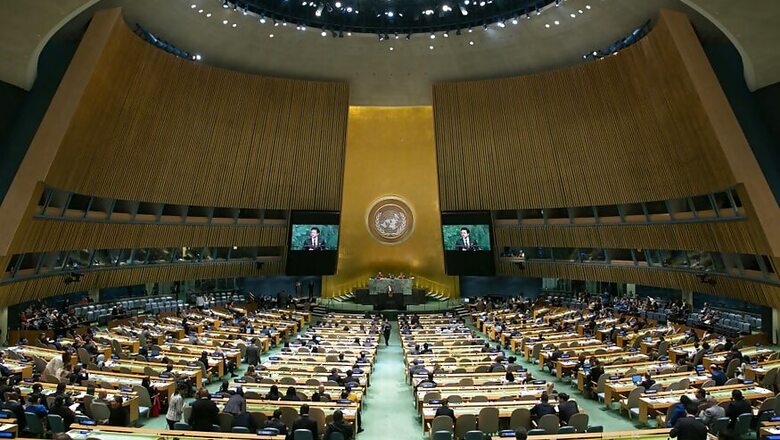
views
United Nations: Citing a project in India where farmers are using solar-powered pumps to access groundwater for irrigation, UN General Assembly president Miroslav Lajcak has said that the world needs science for tackling global water scarcity.
Noting that the 2030 Agenda for Sustainable Development calls for making sure that there is water and sanitation for all, Lajcak on Tuesday said water is critical for achieving all Sustainable Development Goals but world leaders are not doing enough.
"We need science for solutions. Science now helps us to calculate how population growth and climate change will affect the availability of water. It helps us track the shifting of rivers in order to help predict floods. In India there is a project where farmers use solar-powered pumps to access groundwater for crop irrigation,” Lajcak said in his address to the 'Science for Water' conference convened by UNESCO and Joint Research Centre of the European Commission.
"In Nairobi I met a young lady from Burkina Faso who has created a plant-based purification system to help manage fresh water; and an 11-year-old girl in Flint Michigan has developed a device to quickly detect lead levels in water. These examples are science for water – in action," he said.
"Water runs through every SDG, every pillar of the UN and every person. And it affects all – from Cape Town to Flint, Michigan." Scientists, he said, predict that on June 4 Cape Town will have to start rationing water.
"As we approach this imminent 'Day Zero', human health and life hang in the balance. We cannot turn back the hands of time, but we can use science to act before it is really too late," he said.
Noting that 2030 Agenda calls for making sure that there is water and sanitation for all, he said water is critical for achieving all Sustainable Development Goals.
"Yet we are not doing enough, collectively, to achieve SDG 6 on water,” he said.
"We are putting tremendous pressure on our environment, including water sources. Climate change is making the water shortage worse – from droughts to torrential rainfall, our water sources and systems are being destroyed," he said.
Lajcak said water pollution is turning rivers into hotbeds of disease and over 80 per cent of the world’s wastewater is released without treatment.
"This is not sustainable. We lamented this at COP 23 in Bonn, at UNEA in Nairobi. But we need to take urgent action,” he said.
Four out of 10 people worldwide are affected by water scarcity. And by 2025, it is estimated that 1.8 billion people will be living with absolute water scarcity, he said, noting that behind these statistics are real people.
"And focusing on people means understanding their plight. We have to bridge the gap between science and policy – and the gap between policy and people. It means walking in the shoes of the woman who must travel miles for a drink of water every day. The child who goes to bed thirsty. The family that has to drink, bathe and wash clothes in dirty water,” he said.
United Nations















Comments
0 comment